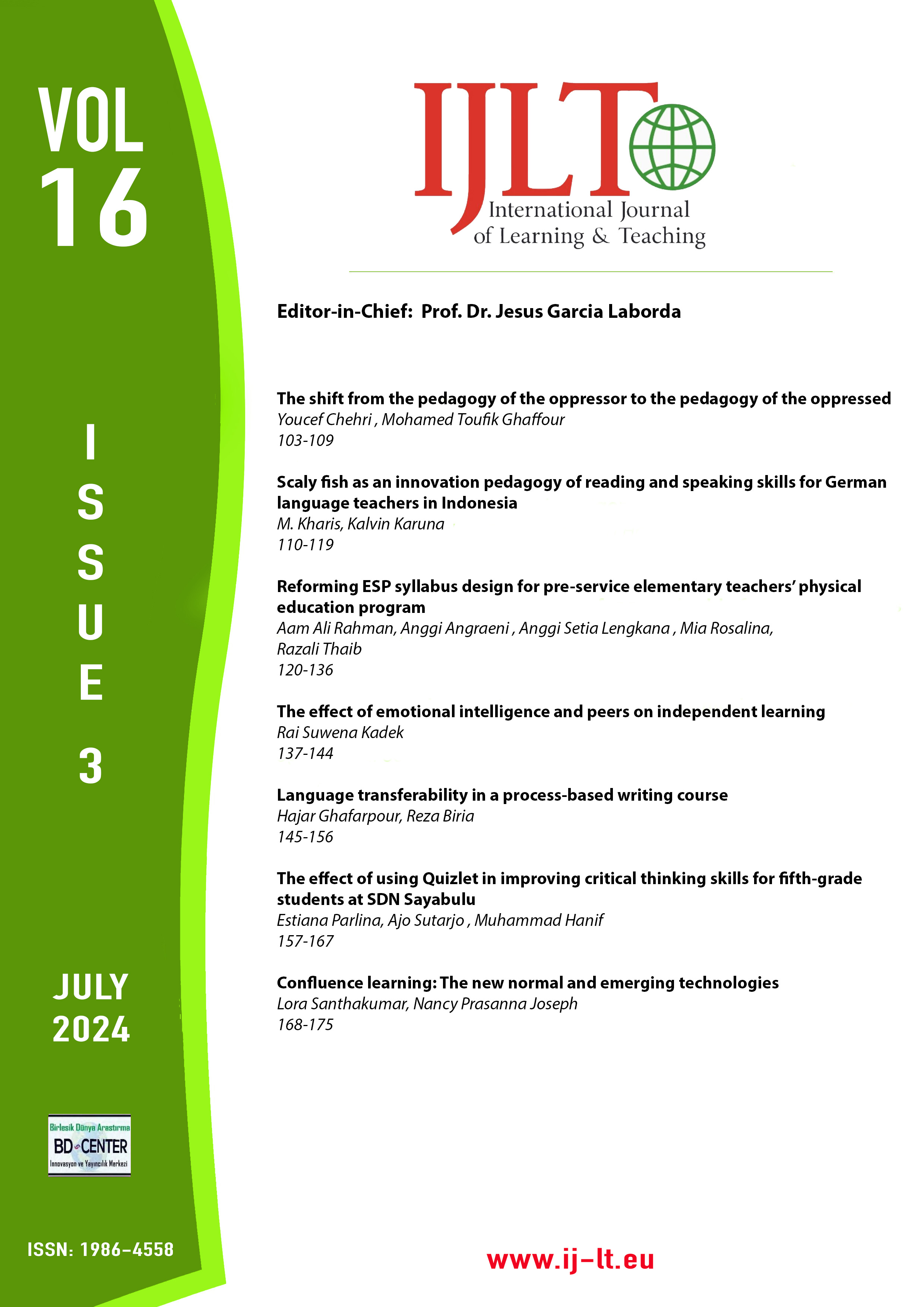Reforming ESP syllabus design for pre-service elementary teachers’ physical education program
Main Article Content
Abstract
Technology-cultivated learning opens opportunities to acquire knowledge from various resources. However, languages become a barrier for non-English major students. Nevertheless, ESP allows students to familiarize their English with their specific subject. Thus, this study aimed to explore the needs of the Physical Education of Elementary Teacher Program (PE-ETP) pre-service teachers. 188 participants and two lecturers participated in this study. The survey, focus group discussion, and interview were used to collect data. The result shows that some of the participants considered ESP as a very important part of the curriculum; consider it important. Ver few participants disagree that ESP is part of the curriculum. Further, eight possible topics were offered in developing ESP courses for the PE-ETP. The topics are teaching PE using English, academic English for sports , athlete communications , referee communications, coach communications, sports category, sports terms, and Physiology terms. The topics can be developed into specific course units in syllabus design.
Keywords: ESP; need analysis; physical education; pre-service teacher; syllabus design
Downloads
Article Details

This work is licensed under a Creative Commons Attribution-NonCommercial-NoDerivatives 4.0 International License.
Authors who publish with this journal agree to the following terms:
- Authors retain copyright and grant the journal right of first publication with the work simultaneously licensed under a Creative Commons Attribution License that allows others to share the work with an acknowledgement of the work's authorship and initial publication in this journal.
- Authors are able to enter into separate, additional contractual arrangements for the non-exclusive distribution of the journal's published version of the work (e.g., post it to an institutional repository or publish it in a book), with an acknowledgement of its initial publication in this journal.
- Authors are permitted and encouraged to post their work online (e.g., in institutional repositories or on their website) prior to and during the submission process, as it can lead to productive exchanges, as well as earlier and greater citation of published work (SeeThe Effect of Open Access).
